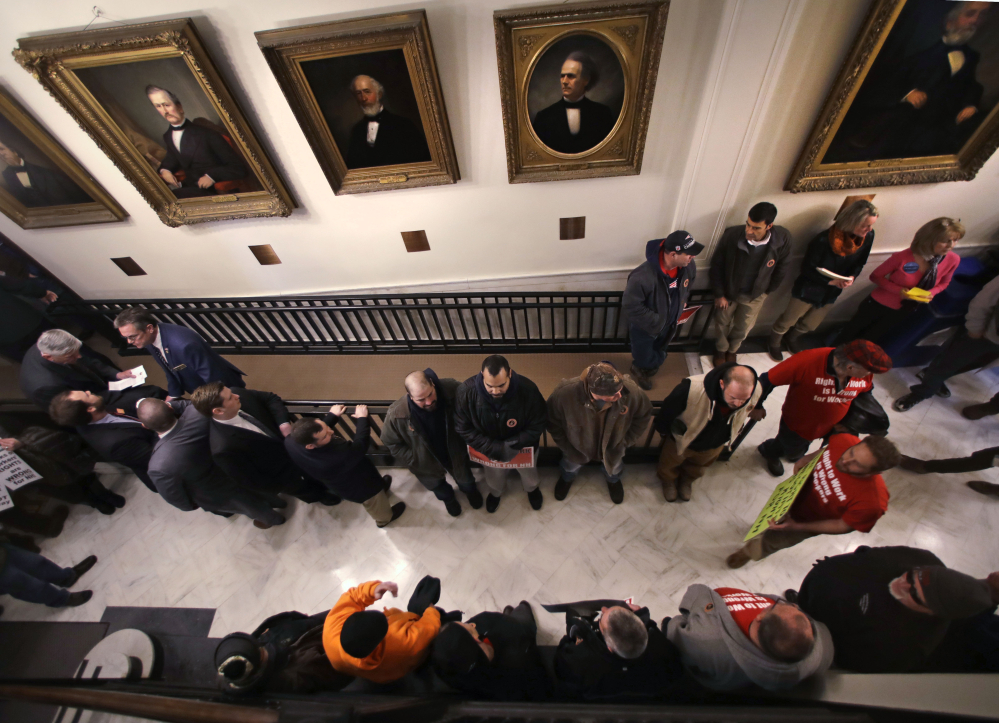CONCORD, N.H. — New Hampshire will not become the next so-called right-to-work state, despite full Republican control of the State House and aggressive lobbying efforts by Republican Gov. Chris Sununu.
The defeat of the union-targeting legislation Thursday came at the hands of fellow Republicans who believe it would weaken unions, hurt workers and fail to boost New Hampshire’s economy. The bill passed in the Republican-led Senate last month.
The legislation called for prohibiting unions from charging fees to nonmembers for the costs of representation. Supporters argued it would make New Hampshire more business friendly and increase worker freedom.
Thirty-two of 223 House Republicans bucked the new governor, a significant split on an issue that is part of the Republican platform. The bill failed on a vote of 200 to 177. And the chamber did more than kill the bill – it moved to “indefinitely postpone” it, meaning no similar bills can be debated for the next two years.
“While it is clear that some House members did not understand this opportunity to unleash the untapped potential of our economy, I know that we can continue to work collaboratively on initiatives that will drive new business into the state,” Sununu said in a statement after the vote.
Right to work has been debated in New Hampshire since the 1980s. It was vetoed by a Democratic governor in 2011, and Republicans could not muster the votes to override the veto. The Northeast and the West Coast remain the only regions of the country without any right-to-work states.
Sununu made an aggressive last-minute pitch to flip votes before the session began Thursday, several lawmakers said. And state Republican Party Chair Jeanie Forrester had suggested the day before that Republicans who didn’t back the bill might not receive financial help from the party in the next election. Neither effort was effective enough.
Republican Rep. Sean Morrison, a firefighter, said suggestions that right to work would attract businesses into New Hampshire were misplaced. Roughly 9 percent of New Hampshire workers are unionized, according to federal statistics, and between just 3 percent and 4 percent are in private unions. He argued that the legislation would weaken the power of unions, therefore hurting workers.
“I implore you to oppose this attack on our middle class,” Morrison said.
House Speaker Shawn Jasper warned for weeks that he likely didn’t have the votes to pass the bill and suggested it wasn’t an effort worth tearing the party apart over. Still, he commended Sununu for doing his best to pass it.
“He didn’t worry about whether this was going to affect him politically or not,” Jasper said. “So I applaud him for having the courage to go ahead even though he was going against the odds.”
Send questions/comments to the editors.



Success. Please wait for the page to reload. If the page does not reload within 5 seconds, please refresh the page.
Enter your email and password to access comments.
Hi, to comment on stories you must . This profile is in addition to your subscription and website login.
Already have a commenting profile? .
Invalid username/password.
Please check your email to confirm and complete your registration.
Only subscribers are eligible to post comments. Please subscribe or login first for digital access. Here’s why.
Use the form below to reset your password. When you've submitted your account email, we will send an email with a reset code.